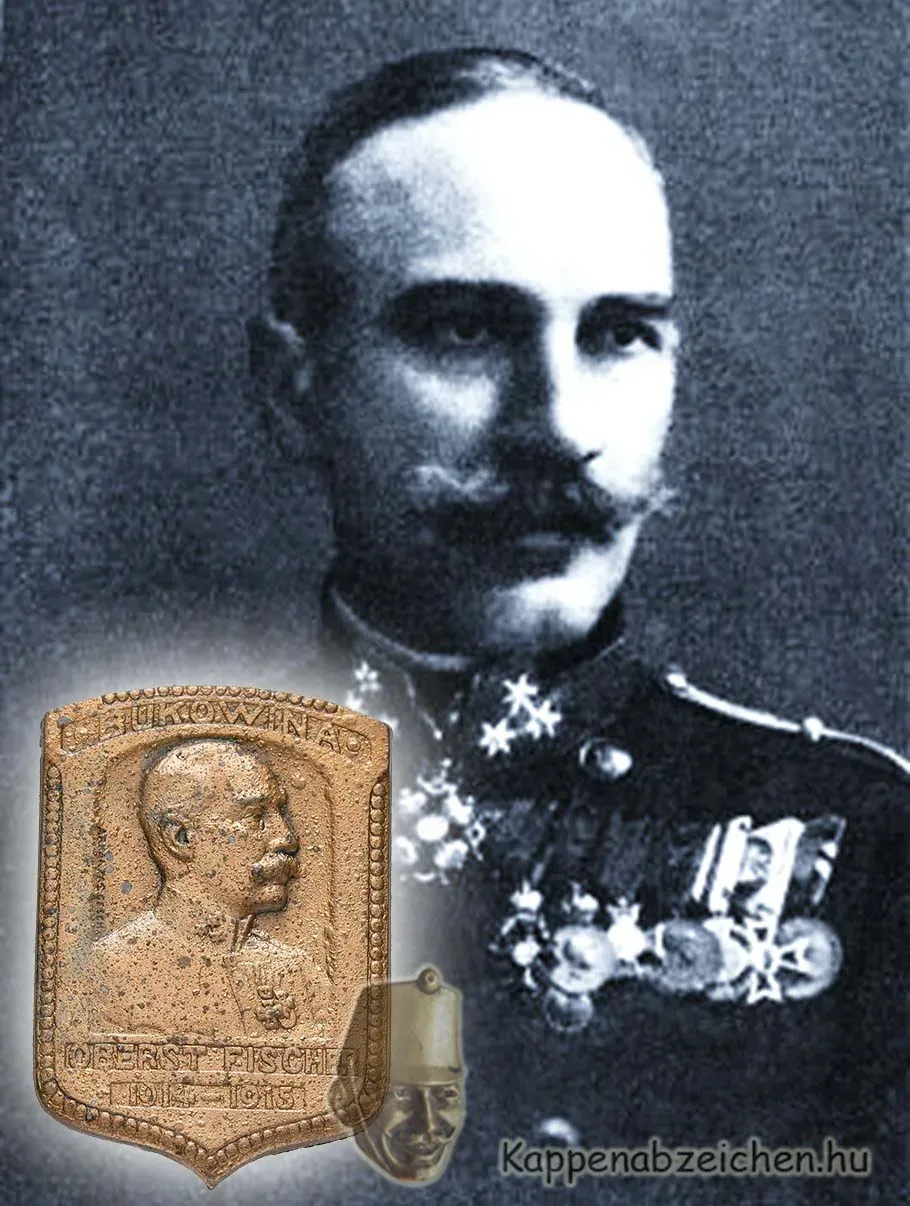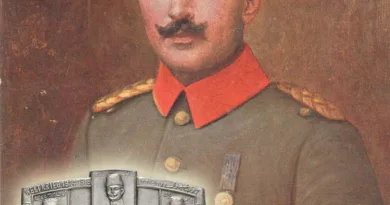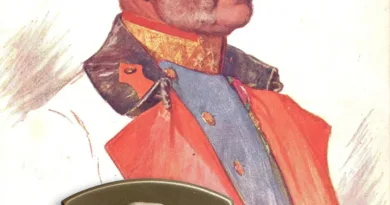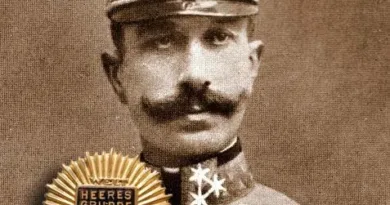Colonel Eduard Fischer
He was born in 1862 in Carapciu, Bukovina. He prepared for a military career since childhood, and began his career as a volunteer of the 41st Infantry Regiment. He was promoted to lieutenant in 1888. In 1891, he was transferred to the gendarmerie. He spent most of his career in this troop. In 1895, he became the gendarmerie commander of Czernowitz and the deputy gendarmerie commander of Bukovina. In recognition of his excellent work, he was awarded the Knight’s Cross of the Order of Franz Joseph in 1907. In 1912, he was promoted to major and received the Military Merit Cross.

At the peak of his career, from August 1914, he was the leader of the Bukovina volunteers, first as a lieutenant colonel and then as a colonel. Its main base area was the region of Gura Homorului and Campulung. Here he managed to set up a military unit with the strength of a division. In September 1914, he managed to recapture with his troops the provincial capital, Czernowitz from the Russians, which he was able to hold until the middle of November. The Russians set a reward of 100,000 rubles on his head. The Kaiser awarded him the Order of the Iron Crown in September, and then also the Leopold Order in April 1915. After the expulsion of the Russians, from February 1918 he became the gendarmerie commander of Bukovina and Galicia with the rank of major general.

In the final days of the war, “Andreas Hofer of the East” remained in his narrower homeland, Bukovina, where he was, of course, arrested and sent to a camp by the occupying Romanians. In 1920, he was expelled to Austria. In 1927, he received the Knight’s Cross of the Military Order of Mary Theresia. He died shortly thereafter. Its popularity is evidenced by the badge made with its portrait. Another Kappenabzeichen was prepared for the volunteers and gendarmerie troops that he led.




